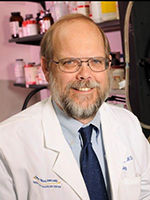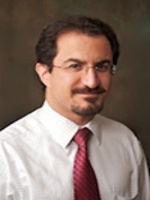Basic science researchers in the Emory University Division of Cardiology have made several groundbreaking contributions to the study of vascular biology, particularly in:
- Atherosclerosis
- Hypertension
- Biology of oxygen radicals and their role in both normal vessel function and vascular disease
- Regulation reactive oxygen species (ROS) production by vascular cells and the impact of ROS on vascular inflammation, vascular tone, lesion formation and blood vessel remodeling
- Endothelial and vascular smooth cell mechanobiology – regulation of vascular gene expression and phenotype in response to mechanical forces
- Regeneration/repair of blood vessels through induced pluripotent stem cells and bone marrow-derived progenitor cells
Taylor cardiovascular lab
W. Robert Taylor, MD, PhD‘s research team primarily aims to better understand the role of inflammation in cardiovascular disease. Inflammation has a wide range of effects on the cardiovascular system–some positive, some pathological. Maladaptive inflammation is a common theme in many disease states and is especially important to most cardiovascular diseases. The Taylor lab researches the mechanisms and consequences of inflammation in cardiovascular disease. Their ultimate goal is to develop improved therapies that target inflammation. They are also interested in the beneficial effects of vascular inflammation and have studied these in the setting of collateral vessel formation. Read more
Griendling cardiovascular lab
Kathy Griendling, PhD‘s basic science cardiology lab researches the role of reactive oxygen species in smooth muscle proliferation, migration, and differentiation and the role of oxidative stress in the pathogenesis of vascular disease. Dr. Griendling and her colleagues were among the first to recognize that the vasoactive peptide, angiotensin II, activates a non-phagocytic NADPH oxidase in vascular smooth muscle, and that this enzyme contributes to the pathophysiology of vascular disease. Based on their previous findings, they are currently studying a number of areas related to vascular biology, including:
- The signaling pathways by which Nox4 mediates vascular smooth muscle cell differentiation
- The redox-sensitive signal transduction pathways by which reactive oxygen species derived from Nox proteins mediate vascular smooth muscle cell migration
- The p22phox-interacting protein, Poldip2, the first known regulator of Nox4
- The role of the novel NADPH oxidases in vascular disease Read more
Rezvan cardiovascular lab
Amir Rezvan, MD, MS heads a research lab that studies the mechanisms underlying atherosclerosis. Along with his colleagues He-Ying Sun, PhD and Yu Wang, PhD, Dr. Rezvan intends to identify ways in which to prevent and treat atherosclerosis, the leading cause of the death in the United States. In particular, their research focuses on the impact of mechanical forces on the interaction between the endothelium and the immune system. Currently, their main NIH-funded project focuses on the role of the shear-stress regulated transcription factor ZBTB46 on the interaction between endothelial cells and immune cells and the role it plays in atherosclerosis. Additionally, Dr. Rezvan’s team is collaborating with various labs on projects studying the role of the liver in regulating immune tolerance and its impact on atherosclerosis and the role of circulating miRNA-146 on vascular inflammation. Read more
More about Dr. Taylor
Dr. Taylor holds a PhD from Johns Hopkins University and an MD from Harvard Medical School. He obtained his training in internal medicine at Harvard Medical School and Boston’s Beth Israel Hospital. After completing his training in cardiology at Emory University School of Medicine, Dr. Taylor joined the faculty of the Department of Medicine. He currently serves as interim chair of the Emory University Department of Medicine, director of Emory’s Division of Cardiology, and as a professor of medicine and biomedical engineering at Emory University School of Medicine. Read more
More about Dr. Griendling
Dr. Griendling received her PhD in cardiovascular physiology from Johns Hopkins University (1982). She performed her postdoctoral training with Dr. Robert Cox at the University of Pennsylvania and Dr. R. Wayne Alexander at Harvard University. She is currently a professor of medicine in the Emory University Division of Cardiology and a fellow of the American Heart Association. She serves as an associate editor for Circulation Research and is one of the executive editors of Antioxidants and Redox Signaling. Additionally, Dr. Griendling serves as vice chair for research and faculty development in the Emory University Department of Medicine and assistant dean for faculty development at the Emory University School of Medicine. Read more
More about Dr. Rezvan
Amir Rezvan, MD, MS is developing a research program in the Emory University Division of Cardiology and serves as a general cardiologist at Grady Memorial Hospital. Dr. Rezvan is a 2012 graduate of the cardiology program at Emory University School of Medicine. Prior to that, he completed his internal medicine residency at Drexel University in Philadelphia, Pennsylvania, where he also earned a master of science in biomedical sciences. Dr. Rezvan received his MD from the Iran University of Medical Sciences in Tehran. Read more
If you are interested in investing in research, clinical care, and/or education within the Emory University Division of Cardiology, please visit our website to learn how you can help.
Related Links





Be the first to comment on "Focus on Research: Vascular Biology (Cardiology)"